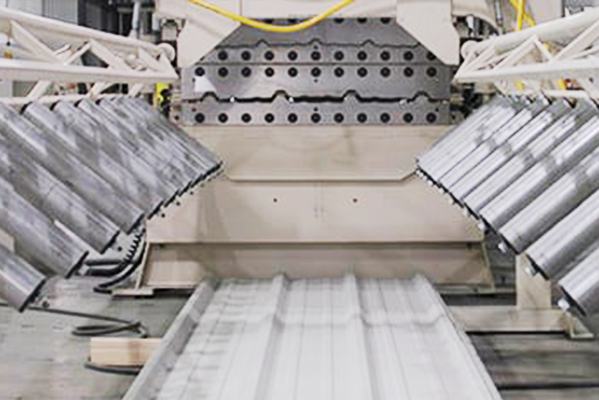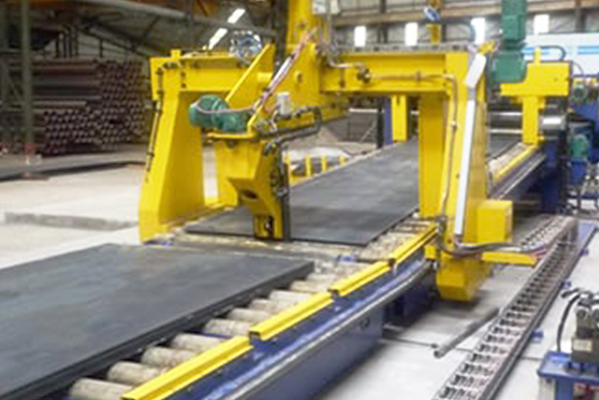Navigation Menu
Contact Us
- Email:
- info@wxavatar.com
- Address:
- Yurong Village, Yuqi Street, Huishan District, Wuxi, China.
Release Date:Nov 13, 2024 Visit:205 Source:Roll Forming Machine Factory
The roll forming machine manufacturing industry is a vital sector within the broader manufacturing landscape, producing equipment that shapes and forms metal into various shapes and sizes for a multitude of applications. In this industry, quality and reliability standards are paramount, ensuring that the machines perform consistently, efficiently, and safely over their lifespan. This article explores the importance of these standards, the processes by which they are established and maintained, and their impact on the industry.

The Significance of Quality and Reliability
Quality and reliability are intertwined concepts in roll forming machine manufacturing. Quality refers to the machine's adherence to design specifications, material integrity, and precision in operation. Reliability, on the other hand, pertains to the machine's ability to perform consistently under various conditions and over an extended period. Together, these standards ensure that roll forming machines meet the needs of manufacturers, reduce downtime, and minimize maintenance costs.
Establishing Quality and Reliability Standards
Manufacturers of roll forming machines employ a range of processes to establish and uphold quality and reliability standards. These include:
Design and Engineering: Rigorous design and engineering practices ensure that machines are built to meet precise specifications. This includes the use of advanced software for simulations and stress analyses, which help predict machine performance and identify potential issues before they arise.
Material Selection: The choice of materials is crucial for both quality and reliability. Manufacturers select materials based on their strength, durability, and resistance to wear and tear. These materials are then tested to ensure they meet the required standards.
Manufacturing Processes: Precision manufacturing processes, such as CNC machining and robotic welding, ensure that parts are made to exact dimensions and specifications. These processes also minimize human error and enhance overall machine quality.
Quality Control: Manufacturers implement strict quality control measures throughout the production process. This includes inspections at various stages of production, as well as final testing to ensure that each machine meets the established quality and reliability standards.
Maintaining Standards Over Time
Once roll forming machines are manufactured, maintaining quality and reliability standards over their lifespan is essential. Manufacturers often provide ongoing support and maintenance services, including:
Technical Support: Manufacturers offer technical support to help customers troubleshoot issues and optimize machine performance. This support can be provided through phone, email, or on-site visits.
Parts and Service: Manufacturers maintain a supply of genuine parts to replace worn-out or damaged components. They also offer repair and maintenance services to keep machines running smoothly.
Training and Development: Manufacturers often provide training programs for customers' operators and maintenance personnel. These programs help ensure that machine operators are knowledgeable about proper operation and maintenance practices.
Impact on the Industry
Adherence to quality and reliability standards has several positive impacts on the roll forming machine manufacturing industry:
Customer Satisfaction: Machines that meet high quality and reliability standards deliver consistent performance, reducing downtime and maintenance costs for customers. This leads to higher customer satisfaction and loyalty.
Competitive Advantage: Manufacturers that prioritize quality and reliability can differentiate themselves from competitors, attracting customers who value these attributes.
Industry Growth: By ensuring that roll forming machines are reliable and efficient, manufacturers contribute to the overall growth of the manufacturing industry. This, in turn, supports economic development and job creation.

Conclusion
In conclusion, quality and reliability standards are essential for the roll forming machine manufacturing industry. They ensure that machines are built to precise specifications, perform consistently, and meet the needs of manufacturers. By establishing and maintaining these standards, manufacturers can enhance customer satisfaction, gain a competitive advantage, and contribute to the overall growth of the industry.